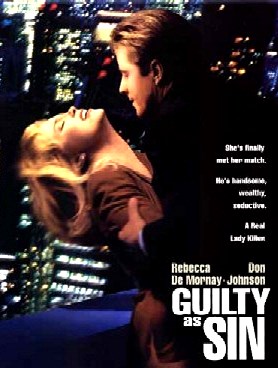FACTS OF CASE: reviews in detail the types of documents and information that are covered by solicitor client privilege, those that are not, and the legal reasoning.
The respondents were appointed trustees in foreign bankruptcy proceedings of the appellant bankrupt. They sought an order requiring the appellant law firm to disclose accounting information relating to the bankrupt. The chambers judge found the law firm’s trust ledgers were not presumptively privileged nor did they arise out of communication for the purposes of obtaining legal advice. Disclosure was ordered with the exception of any notes relating to legal advice or communications for the purpose of legal advice.
The Appeal Court held the Chambers Judge was correct in concluding the trust ledger was not presumptively privileged and disclosure would not violate the client’s right to communicate in confidence with his legal advisor.
The chambers judge succinctly described the principles of solicitor-client privilege established in the jurisprudence and reiterated by the Supreme Court of Canada in Maranda v. Richer, 2003 SCC 67, [2003] 3 S.C.R. 193. Following Descôteaux v. Mierzwinski, [1982] 1 S.C.R. 860, 141 D.L.R. (3d) 590, and Donell v. GJB Enterprises Inc., 2012 BCCA 135, he proceeded on the basis that:
a) Solicitor-client privilege is a fundamental substantive right of the client founded upon the unique relationship of solicitor and client;
b) At a minimum, Maranda establishes that lawyers’ bills, in the criminal law context, are presumptively subject to solicitor-client privilege;
c) This presumption flows from the connection between lawyers’ bills and the nature of the relationship between lawyers and clients; the account reflects work done on behalf of the client which involves communications that are privileged;
d) The presumption may be rebutted if it is established that there is no reasonable possibility that disclosure will directly or indirectly reveal any communications protected by privilege;
e) Maranda did not do away with the distinction between evidence of communications, which is privileged, and evidence of facts, which is not;
f) Financial records of lawyers other than records of bills are not presumptively subject to solicitor-client privilege insofar as they merely represent records of actions or facts, but they should not be produced automatically solely for that reason;
g) Maranda mandates that it is necessary to consider such records in order to determine whether they arise out of the solicitor-client relationship and what transpires within it, that is, communications to obtain legal advice;
h) If it is concluded that the records do arise out of that relationship and what transpires within it, they are presumed to be privileged, but the privilege can be rebutted and the document produced if it is established that production will not permit the deduction or acquisition of communications protected by solicitor-client privilege.
[17] The chambers judge concluded that most of the information sought by the Trustees was evidence with respect to the objective state of affairs: the value of funds held in trust for Mr. Luu; the record of funds provided to the firm by Mr. Luu or received by the firm to his credit; and records relating to activities in the trust account. He concluded this information was not presumptively privileged.
[18] Having decided that those specific records were not presumptively privileged, the chambers judge went on to consider whether the information recorded might nevertheless be said to arise out of communications for the purposes of obtaining legal advice. The records had not been produced for examination
Discussion
[32] The chambers judge properly noted that the right to communicate in confidence with one’s legal advisor is a fundamental civil and legal right, founded upon the unique relationship of solicitor and client: Solosky v. The Queen (1979), [1980] 1 S.C.R. 821, 105 D.L.R. (3d) 745; and Descôteaux.
[33] That right is not lost to a bankrupt and cannot be waived by a trustee in bankruptcy, even where doing so might reveal the whereabouts of some of the bankrupt’s property: Re Chilcott and Clarkson Co. Ltd. (1984), 48 O.R. (2d) 545, 13 D.L.R. (4th) 481 (C.A.); and Bre‑X Minerals Ltd. (Trustee of) v. Verchere, 2001 ABCA 255.
[34] While Chilcott stands for the proposition that a trustee cannot waive the privilege that attaches to communication between the bankrupt and his solicitors, it does not stand for the broad proposition that any and all information in the hands of the bankrupt’s solicitors, with respect to the bankrupt’s affairs, is privileged. To the contrary, the solicitors were ordered to make significant disclosure in Chilcott. The Alberta Court of Appeal in Bre‑X described the issues in Chilcott as follows:
[37] … [I]n that case, a solicitor acted on behalf of the bankrupt prior to the bankruptcy and advised the bankrupt on financial and other corporate matters. The trustee sought to examine the solicitor regarding privileged communications with the bankrupt. Although the court accepted that the solicitor could be compelled to disclose information about the bankrupt’s property, affairs and transactions, the court held that information on any topic necessarily involving disclosure of communications made between the solicitor and the bankrupt for the purpose of giving legal advice could not be disclosed. Ultimately, the court refused to speculate on circumstances in which a trustee might properly waive a bankrupt’s privilege, but it concluded that the goal of protecting creditors’ rights, standing alone, could not defeat solicitor-client privilege.
[Emphasis added.]
[35] The dispute in the case at bar required the chambers judge to follow both the line of cases, including this Court’s recent decision in Donell, requiring solicitors to disclose records of trust transactions, and the line of cases including Descôteaux and Maranda, that extend solicitor-client privilege to information concerning lawyers’ bills including the client’s ability to pay the lawyer and any other information which a lawyer is reasonably entitled to require before accepting the retainer. The appellants say the judge erred in striking a balance between competing interests in the case at bar. The amount paid for legal fees may be deduced from the information the firm has been ordered to disclose; that being the case, the order intrudes upon privileged communications. The appellants say the courts have recently and strongly reaffirmed the rule that solicitor-client privilege must be rigorously protected. It should not be balanced against competing interests in disclosure.
[36] In my view, the chambers judge was correct to say there is no presumption that the information in a solicitor’s trust ledger is privileged. Making such a presumption would be inconsistent with this Court’s decision in Donell. The chambers judge cited extensively from the majority judgment in Donell and rightly, in my opinion, found in that judgment an answer to the appellant’s objections to production of the ledger.
[37] In that case, the court-appointed receiver’s application for production of a law firm’s records of the business, affairs or property of the respondents was dismissed. The chambers judge found solicitor-client privilege attached to all of the files and documents in the possession of the firm. On appeal, the majority noted that in R. v. Joubert (1992), 7 B.C.A.C. 31, 69 C.C.C. (3d) 553, this Court, at 569, concluded that a record of money paid into and out of a lawyer’s trust account was not subject to solicitor-client privilege. In response to the argument that trust accounts had historically been disclosed because they were considered to record facts, rather than communications, and the argument such a distinction had been done away with in Maranda, Chiasson J.A. noted in Donell:
[43] Much has been made of LeBel J.’s treatment in Maranda of the distinction between communications and actions or facts. In this province there has been debate as to whether Maranda did away with the distinction. In my view, it did not.
[44] It is important to remember that the issue before the Supreme Court concerned the production of a lawyer’s bill for fees and disbursements. This was the issue that was placed into the context of the distinction between communications and facts.
[38] A lawyer’s bills are presumptively privileged because they are ordinarily descriptive; by recording the work done by the solicitor, they disclose the client’s instructions, which the client cannot be compelled to divulge and the confidentiality of which the solicitor is obliged to protect. Chiasson J.A. noted:
[49] I see nothing in Maranda that erodes generally or does away with the distinction between facts and communications. The case concerned a specific type of document ‒ a lawyer’s fee account ‒ which is intrinsically connected to the solicitor-client relationship and the communications inherent to it; to repeat LeBel J.’s formulation, “[t]he existence of the fact consisting of the bill and its payment arises out of the solicitor-client relationship and what transpires within it”. As noted by LeBel J., what transpires within that relationship is communication for the purpose of enabling clients to obtain legal advice; it is that communication that is protected by solicitor-client privilege.
[39] The privilege extends to administrative facts tending to reveal the nature or extent of legal assistance sought and received. However, there is good reason not to extend the presumed privilege to the trust ledger. The entries in a trust account record the possession of and movement of funds which the client may be compelled to disclose. Insofar as the entries record the payment of funds to parties who do not owe a duty of confidence to the client, the client cannot have expected the fact of payment to remain confidential as between himself and his counsel.
[40] After concluding that the trust leger was not presumptively privileged, the chambers judge correctly engaged in the exercise described in Donell by considering whether the entries on the trust ledger would contain information ancillary to the provision of legal advice. In Donell, the Court noted:
[51] In the present case, we are not concerned with a lawyer’s bill. The Receiver seeks production of trust ledgers. Generally, such documents record facts, not communications, and are not subject to solicitor-client privilege, but I would not favour a blanket endorsement of the automatic production of such records. In my view, while the analysis in Maranda did not dispose of the distinction between facts and communications, it requires the court to ensure that entries on a trust ledger do not contain information that is ancillary to the provision of legal advice.
[41] In other words, Maranda restates the importance of ensuring that disclosing factual information, such as administrative facts recorded in the lawyer’s file, does not give the recipient insight into protected communications he is not entitled to receive. The determination that the information sought is factual does not bring an end to the analysis.
[42] In the case at bar, in my opinion, the chambers judge rightly held that disclosure of a redacted trust ledger would not violate the client’s right to communicate in confidence with his legal advisor. That is precisely the exercise endorsed by Chiasson J.A. for this Court in Donell, where he wrote:
[55] I adopt the reasoning of the Alberta Court of Appeal [in Wyoming Machinery Co. v. Roch, 2008 ABCA 433, [2009] 3 W.W.R. 433]. In my view, whether the financial records of a lawyer are subject to solicitor-client privilege depends on an assessment of the connection between the record in issue and “the nature of the relationship in question” (Maranda at para. 32). As was held in Maranda, a lawyer’s bill arises out of the solicitor-client relationship and generally will be protected. This is because bills flow out of communications between the solicitor and the client seeking legal advice. In Greymac, the court held that generally evidence of deposits to and transfers from a lawyer’s trust account is evidence of facts, not of communications. The court held that such records are not privileged, adding the caveat that the “advice and communications from the client relating to advice” must be expunged (para. 22).
[43] While in some cases knowing the amount spent on legal services in relation to a particular matter or issue will give the recipient of that information some insight into the solicitor-client relationship, no significant insight is gained by the disclosure ordered in this case. It cannot be said that deductive reasoning will permit the recipient of the records of trust transactions in the period from August 1, 2011 to July 31, 2013 to learn anything of value with respect to the solicitor-client relationship. The solicitors were first retained in 2007. They had opened an undetermined number of litigation files. The order requires disclosure of records for a discrete period. The recipient of the records may be able to determine, by deduction, how much was paid, in total, for legal services from trust in the relevant period but will not be able to determine what amount was paid for services actually provided to Mr. Luu by the firm during the period from August 1, 2011 to the July 31, 2013, because the records will disclose only payment of accounts, not when the work was done. Some payments may be for work performed before the August 1, 2011. Some of the work performed in the period may have been billed or paid after July 31, 2013. Disclosure of the trust records will not even permit the recipient to determine what fees were billed for legal work during the period because the recipient will learn only what accounts were paid from the trust account. Last, the recipient will not be able to determine which of the litigation files handled by the firm were billed and paid from trust during the period covered by the order.
[44] The subsequent decisions of this Court and the Supreme Court of Canada in Federation of Law Societies of Canada v. Canada (Attorney General), 2013 BCCA 147, varied 2015 SCC 7, and the recent decision of the Québec Court of Appeal in Canada (Procureur général) c. Chambre des notaires du Québec, 2014 QCCA 552, leave to appeal granted February 9, 2015, [2014] S.C.C.A. No. 234, restate the fundamental importance of solicitor-client privilege as a substantive rule of law, as established in Solosky; Descôteaux; Smith v. Jones, [1999] 1 S.C.R. 455 at 474‑476; Lavallee; Pritchard v. Ontario (Human Rights Commission), 2004 SCC 31 at paras. 14 to 21; Goodis v. Ontario (Ministry of Correctional Services), 2006 SCC 31 at paras. 12 to 25; and Canada (Privacy Commissioner) v. Blood Tribe Department of Health, 2008 SCC 44 at paras. 9 to 11. In my view, however, the decisions do not detract from the approach described in Donell to determining what information, with respect to financial transactions in the hands of solicitors, is privileged.
[45] As the Québec Court of Appeal noted in Chambre des notaires du Québec, after discussing the “quasi-absolute privilege” described by the Supreme Court of Canada:
[50] That said—and it is also borne out by the aforementioned case law—not all information that passes between a client and his or her legal adviser is subject to professional secrecy, of course. So, what is subject to it must be distinguished from what is not. How can this be done? Per LeBel J. in Foster Wheeler [2004 SCC 18], we must “use an analytical method that upholds professional secrecy while allowing us to resolve difficulties of this sort”.
[Unofficial English translation provided by Société québécoise d’information juridique (SOQUIJ).]
Failing to Consider Alternate Remedies
[46] The appellants say the chambers judge erred by ordering production of documents from the records of the solicitors when there was another source of the same information: Mr. Luu himself. In my view, there is no merit to this submission. While evidence should not routinely be sought in a client’s lawyer’s office and all reasonable alternatives to doing so must be canvassed, the application before the chambers judge in this case was not an end-run around a more appropriate procedure. The solicitors were not being used as a shortcut to evidence better sought elsewhere.
[47] Mr. Luu is a party to these proceedings. Murray Jamieson continues to act for Mr. Luu in his personal capacity. He is not separately represented on this appeal, nor was he separately represented before the chambers judge. In effect, it is Mr. Luu advancing the claim for privilege and resisting the production of the information now in the hands of his solicitors. It is fair to presume he would oppose production of the information sought by asserting the same privilege if an application were brought in Hong Kong. The claim is properly determined here.










